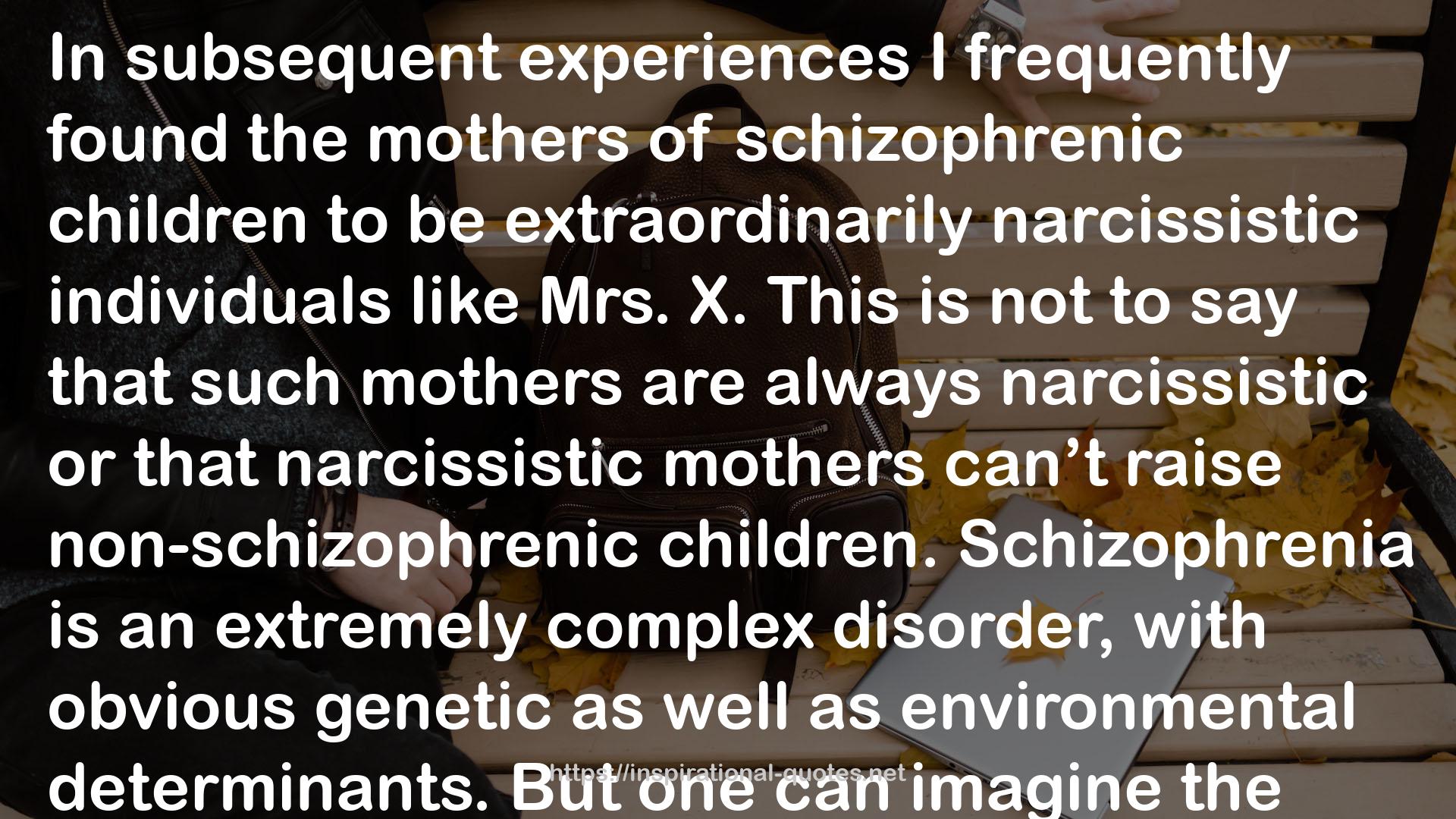" In subsequent experiences I frequently found the mothers of schizophrenic children to be extraordinarily narcissistic individuals like Mrs. X. This is not to say that such mothers are always narcissistic or that narcissistic mothers can’t raise non-schizophrenic children. Schizophrenia is an extremely complex disorder, with obvious genetic as well as environmental determinants. But one can imagine the depth of confusion in Susan’s childhood produced by her mother’s narcissism, and one can objectively see this confusion when actually observing narcissistic mothers interact with their children. On an afternoon when Mrs. X. was feeling sorry for herself Susan might have come home from school bringing some of her paintings the teacher had graded A. If she told her mother proudly how she was progressing in art, Mrs. X. might well respond: “Susan, go take a nap. You shouldn’t get yourself so exhausted over your work in school. The school system is no good anymore. They don’t care for children anymore.” On the other hand, on an afternoon when Mrs. X. was in a very cheerful mood Susan might have come home in tears over the fact that she had been bullied by several boys on the school bus, and Mrs. X. could say: “Isn’t it fortunate that Mr. Jones is such a good bus driver? He is so nice and patient with all you children and your roughhousing. I think you should be sure to give him a nice little present at Christmastime.” Since they do not perceive others as others but only as extensions of themselves, narcissistic "
― M. Scott Peck , The Road Less Traveled: A New Psychology of Love, Traditional Values and Spiritual Growth
